Trump’s immigration policy and the selective targeting of Hispanic communities
By Roya Pour Bagher
Donald Trump has framed his immigration policies as crucial for safeguarding national security and protecting American jobs. However, these policies have a sharp focus on Hispanic communities.
US President Donald Trump, in his old as well as new avatars, has purposely framed his immigration policies as crucial for safeguarding national security and protecting American jobs.
However, these policies have a sharp, noticeable focus on Hispanic communities in the US.
A closer examination reveals that the targeting of Hispanic minorities is not simply about controlling immigration. It reflects a deeper, more entrenched historical and geopolitical trend.
Hypocrisy of Marco Rubio: A Cuban-American paradox
A glaring contradiction exists in the support that Trump’s controversial immigration policies have received from prominent Hispanic politicians, such as Secretary of State Marco Rubio, a Cuban-American who has long presented himself as a champion for the Hispanic community.
Ironically, Rubio has consistently supported Trump’s immigration policies, including the expansion of detention centers and the separation of families at the border.
The paradox deepens considering that Rubio’s own family history is steeped in immigration. His parents came to the US from Cuba during the Fulgencio Batista’s regime.
On one hand, one might argue that Rubio and other Hispanic politicians are simply advocating for “law and order” or national security. On the other hand, their stance risks alienating a significant portion of the Hispanic population, many of whom share personal connection to the harrowing immigrant experience.
Rubio’s support of Trump’s policies is not just viewed as a political alignment. For many, it represents a betrayal of the values of compassion and opportunity that allowed his own parents – and countless others – to build a life in the US and contribute to American society.
Additionally, Trump’s selection of Rubio may have been a strategic move to mitigate accusations of racism. By roping in a Hispanic politician, Trump might have sought to soften his maligned image, all while still pushing forward with aggressive immigration policies.
Root cause of migration: History of US interventions
A critical question to consider is: Why do so many Hispanics migrate to the United States?
The US has a long history of illegal interventions in Latin America, from orchestrating coups to funding right-wing militias. Such meddling has led to economic collapse, political instability, poverty, and violence in several Latin American countries over the decades.
For instance, the US-backed coup in Guatemala in 1954 resulted in the overthrow of a democratically-elected government, and, consequently, the longest and bloodiest civil war in Central American history.
In another example, support for authoritarian regimes in El Salvador during the 1980s fueled brutal clashes that led to massacres, torture, and the displacement of millions.
Therefore, many of the immigrants at the US border today are fleeing from the very conditions created by US hostile foreign policies. However, whether the administration is Democrat or Republican, this uncomfortable truth is never acknowledged or addressed.
On the contrary, Trump’s administration chose to criminalize those seeking refuge.
‘Build the Wall’ and the criminalization of Hispanic immigrants
Another question that arises is: Why are immigrants from European countries or even certain “friendly” Asian nations rarely scrutinized to the same extent as Hispanics?
The targeting of Hispanic minorities may be more about reinforcing racial hierarchies than protecting national security. The following is an excerpt from Trump’s speech in 2015:
"When Mexico sends its people, they're not sending their best... They're bringing drugs. They're bringing crime. They're rapists."
This paints Hispanic immigrants as criminals and threats, forming the foundation of Trump’s campaign, a narrative that persisted until his first presidency.
The narrative is not only false but deeply racist. It relies on harmful stereotypes that equate Hispanic identity with criminality, conveniently ignoring the vast and varied contributions Hispanic immigrants have made to American society.
For instance, there are no hard statistics suggesting that immigrants commit more crimes than native-born Americans, as Trump would have others believe.
In fact, there are statistics suggesting the opposite. Meanwhile, immigrants from wealthier, predominantly white countries are often regarded as more “assimilable” – a notion that is equally unfounded. Trump’s rhetoric perpetuates a stereotype designed to justify harsh policies like family separations and mass deportations.
The criminalization of Hispanic immigrants is yet another troubling chapter in the long history of racial targeting in the United States. Other infamous examples include the Chinese Exclusion Act of 1882 and the internment of Japanese Americans during World War II.
The former law aimed to prevent Chinese laborers from entering the US and denied citizenship to those already living in the country, marking the first federal law explicitly designed to target a specific ethnic group.
The latter involved the forced relocation and detention of over 120,000 Japanese Americans, many of whom were American citizens, based solely on their race.
Framed as a defense against espionage, the internment was in fact deeply rooted in fear, racial prejudice, and a desire to maintain control over a vulnerable population.
Pro-Palestine protesters and targeting of nonconformity
The selective targeting of minorities in the US goes far beyond just Hispanic communities and now extends to justice-seeking students and activists in the country who dare to speak out against the Zionist entity’s genocidal war on Gaza and the American government’s funding and military support of that war.
Pro-Palestine protesters have found themselves facing heightened scrutiny, harassment, and even deportation. A striking example is the revocation of the student visa of the courageous Chinese UCLA student, Liu Lijun, simply because she participated in pro-Palestine rallies.
This selective targeting of immigrants and protesters underscores a much larger, more troubling pattern: minorities who challenge U.S. agendas, whether through their activism or their immigration status, are often treated as dangerous threats to be neutralized.
It highlights the stark hypocrisy of a state that boasts of being a global beacon of liberty, yet systematically silences those who dare to challenge its authority and policies.
Roya Pour Bagher is a Tehran-based writer.
(The views expressed in this article do not necessarily reflect those of Press TV.)
Israel kills more civilians in Gaza amid relentless ceasefire violations
VIDEO | Press TV's news headlines
Israeli soldier fakes kidnapping of Palestinian to extort family
US nurses demand ICE be abolished after colleague killed in immigration crackdown
Lebanon failing prisoners held by Israel, Hezbollah chief says
VIDEO | US deliberately harms Iranian civilians
VIDEO | Venezuela is just the beginning
Calls grow to drop US as 2026 World Cup co-host amid domestic unrest, foreign interference


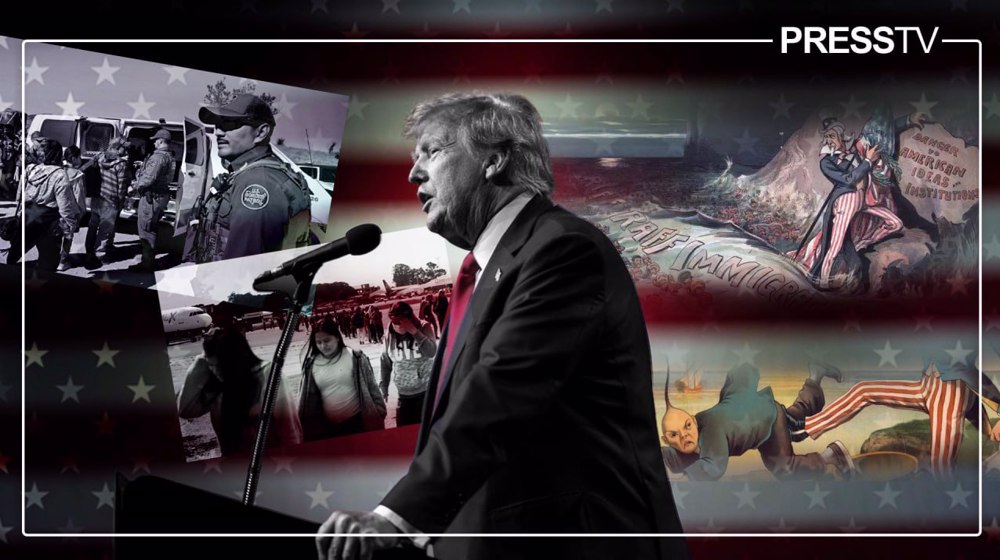
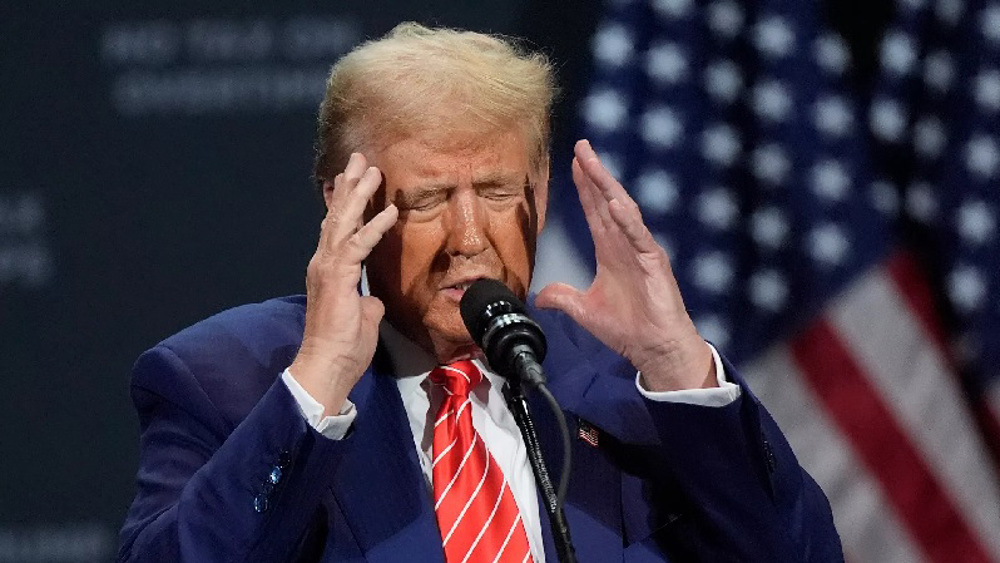

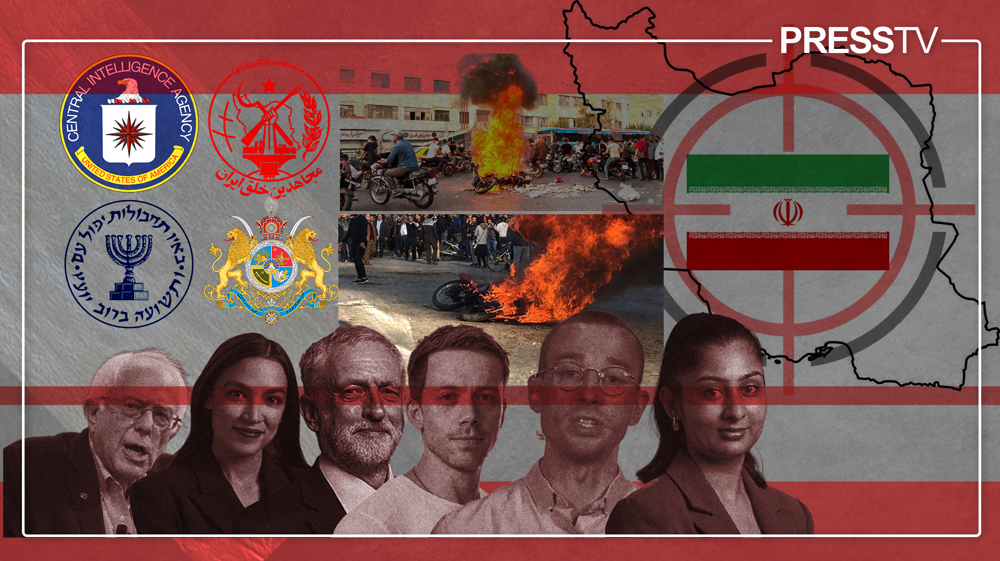
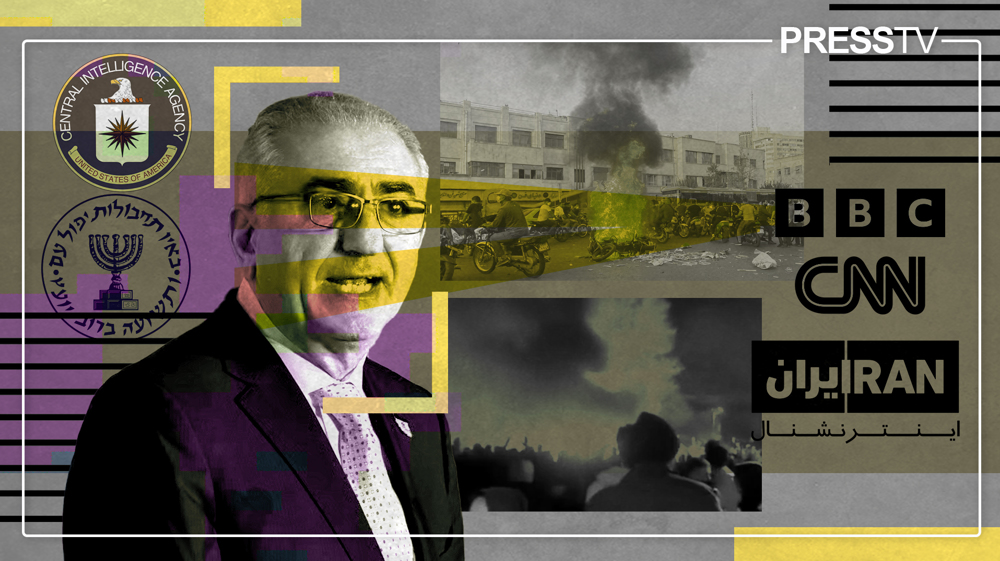
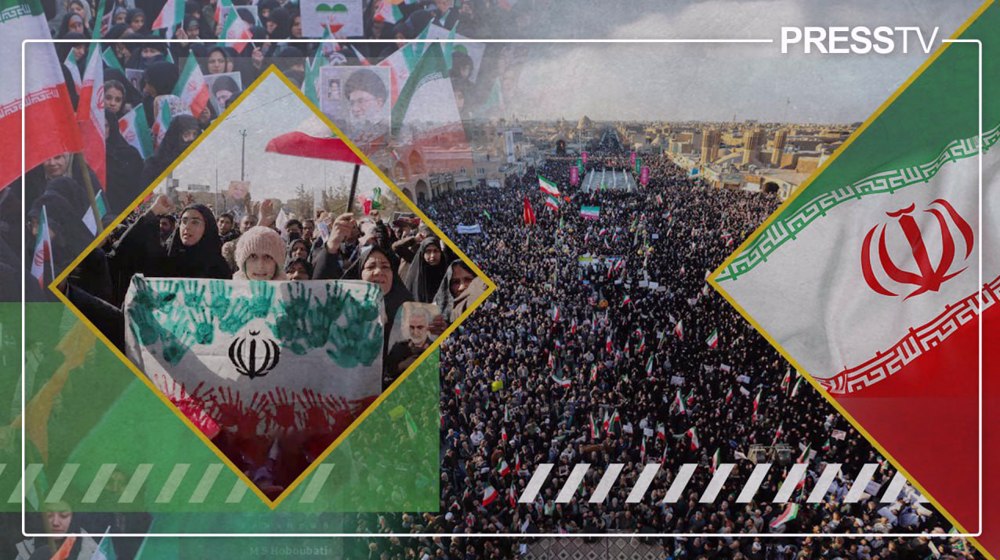



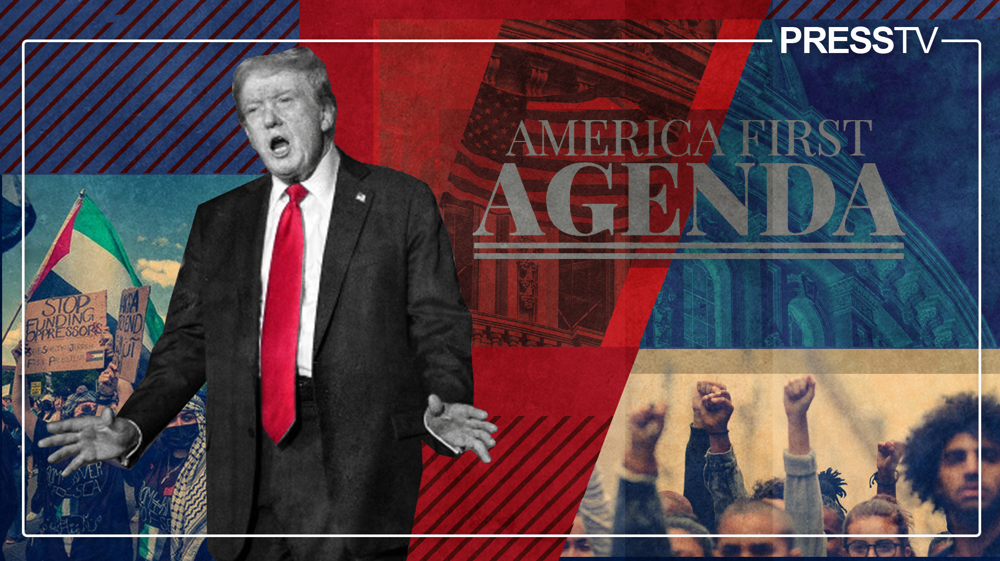
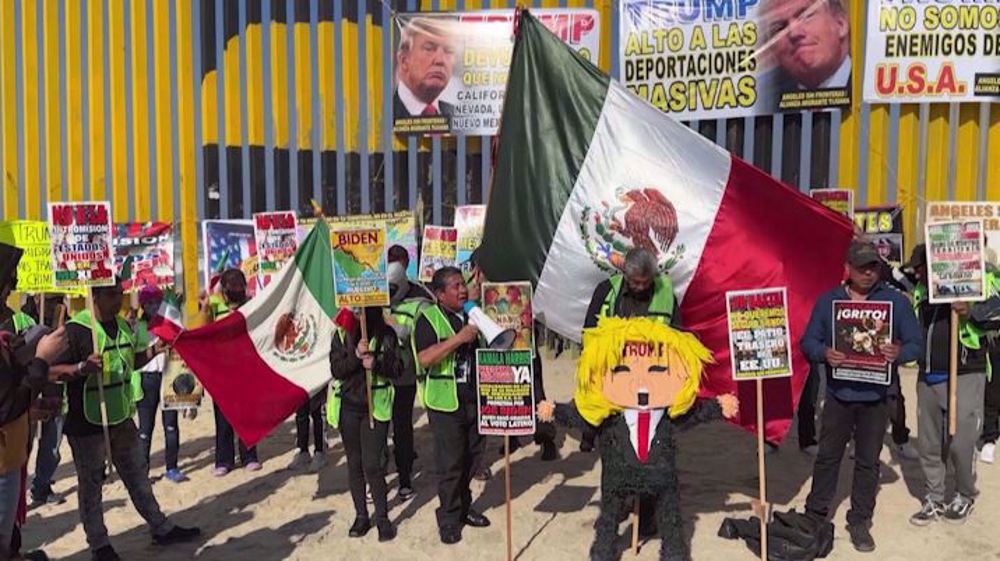
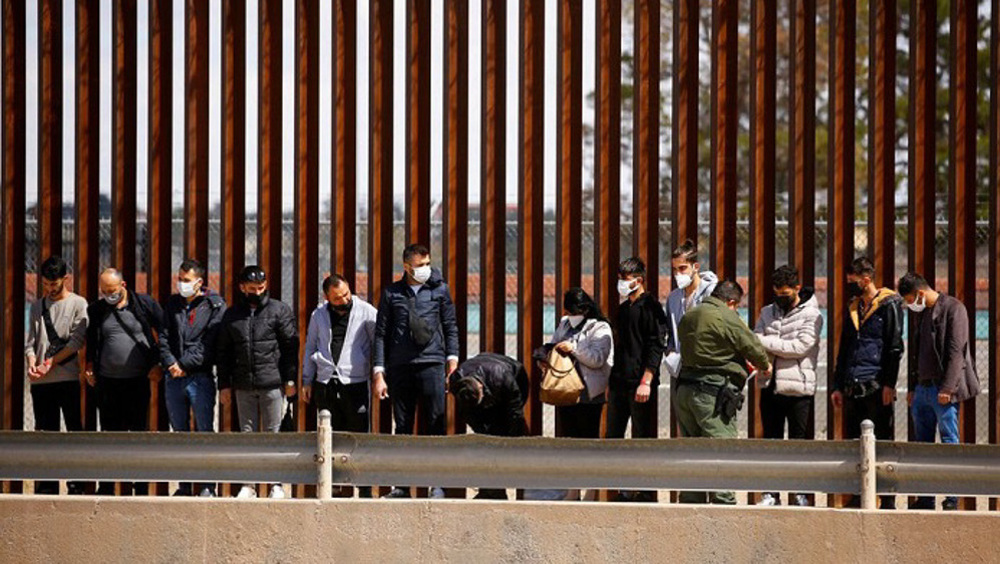
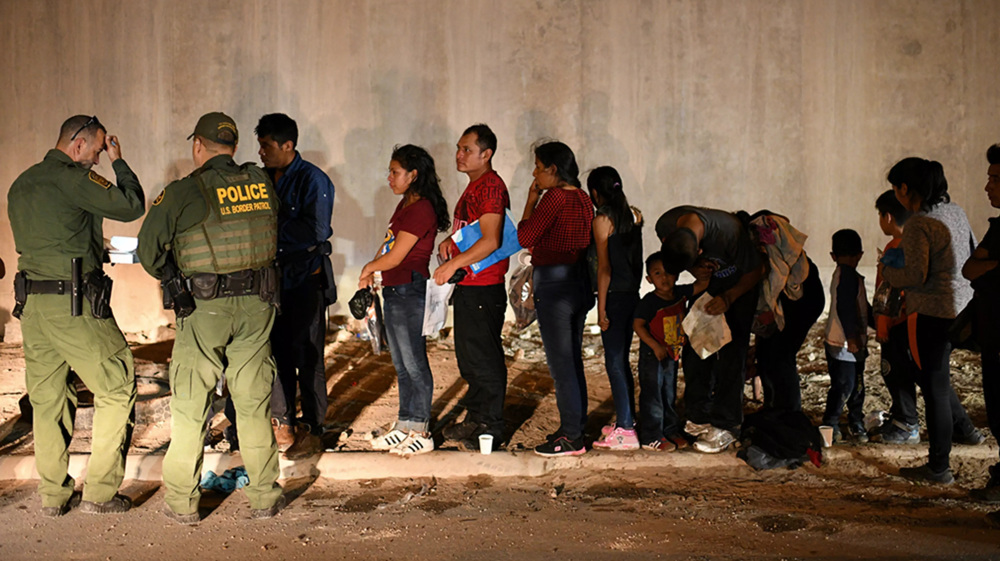


 This makes it easy to access the Press TV website
This makes it easy to access the Press TV website